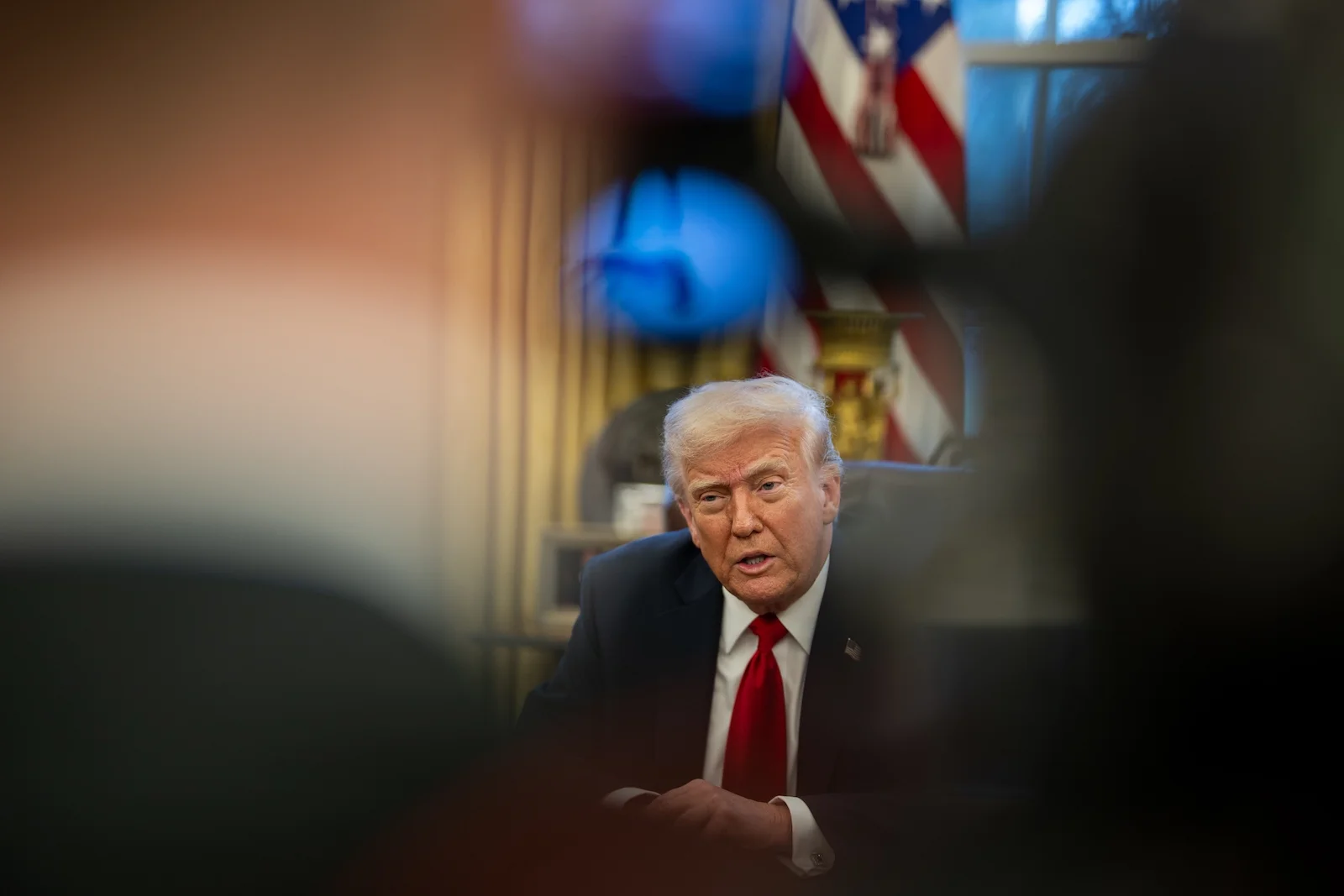
Culture
Africa Between the Rise of Trump and the War in Ukraine
Although I deeply miss Ali Mazrui, who passed away in 2014, his remarkable insights and vibrant spirit remain with us as we navigate an increasingly volatile period in international relations. One can only imagine how his observations would have shed light on today’s global events. I wish to address two of these developments in the spirit of Mazrui’s thinking: the rise of Donald Trump and the war in Ukraine.
Ali Mazrui often noted that the liberal international order—which he sometimes characterized as an extension of Anglo-Saxon hegemony—might not possess the resilience it was often presumed to have. He thoughtfully questioned the permanence of transnational norms and repeatedly stressed the absence of a critical dimension in international relations theory: the role of culture. His ideas, articulated well before Trump’s political ascent or the conclusion of the Cold War, underscore the enduring value of his intellectual foresight.
In 1999, Mazrui observed, “[S]ocial evolutionary theorists…have tended to see change as being essentially in one direction. [For historical materialists, too] history was a journey on a one-way ticket, with an assured destination, but not without bumps on the way. Is the eve of the 21st century the beginning of the journey back?” The question that has now arisen is whether Mazrui was correct in what he foresaw, if not in its timing. Is Trump 2.0 the beginning of the journey back—a sort of evolution in reverse? Such questions make sense, given the parallelism between the current U.S. administration’s recent political rhetoric and policies on immigration and tariffs, on the one hand, and what transpired in late 19th-century America, on the other.
Mazrui might have drawn an analogy between Trump and Uganda’s Idi Amin, just as he once compared Nikita Khrushchev to Amin. Discussing the pitfalls of entrusting state leadership to individuals with peasant origins, Mazrui observed that such figures often lack a nuanced understanding of international affairs and can exhibit an alarmingly parochial view of the world. Trump, despite his privileged upbringing, arguably fits this mold.
In 1974, Mazrui wrote: “ldi Amin, like Nikita Khrushchev before him, has brought to the refined diplomatic AFFAIRS…the rustic embarrassment of inadequate inhibition. Like Russia’s Nikita Khrushchev in the 1950s and early 1960s, ldi Amin is today a peasant bull in the china shop of diplomacy.” The behavioral parallels among Amin, Khrushchev, and Trump are, indeed, striking.
Mazrui elaborated further: “Khrushchev was capable of shouting loudly at another head of government or of taking off his shoe and banging it on the table at the United Nations. Amin was capable of sending a cable to Richard Nixon wishing him a speedy recovery from Watergate and another cable to (Israeli) Prime Minister Golda Meir telling her to pull up her knickers against the background of the October War in the Middle East in 1973.”
In our digital age, the tweet has supplanted the telegram, yet the underlying impulse remains unchanged. In tone and temperament, the “diplomatic” styles of Amin, Khrushchev, and Trump bear a resemblance that would not have escaped Mazrui’s attention.
It is an interesting historical footnote that John Dean, the former White House Counsel during the Nixon Administration and now a prominent critic of Trump, once interviewed Mazrui in 1977. Dean was preparing to launch a radio program titled The Right to Know. What prompted Dean to interview Mazrui? Mazrui said, “John Dean wanted to discuss ‘comparative presidential flaws’ and he knew that l had been, in one way or another, associated with Idi Amin.”
Yet Mazrui would not have stopped at comparison alone. He would have posed deeper questions: What explains Trump’s appeal to a significant portion of the American public despite his evident shortcomings? What is the underlying cause of the Trump phenomenon? In his trademark style, Mazrui might have suggested: “There is a place for imagination in effective leadership. There is also a place for temporal congruity. What Trump lacked in [leadership qualities], he made up for by his visionary compatibility with the mood of America at a particular moment in time.”
My interpretation of Mazrui might deviate from his exact views. Yet, I believe he would have relished a spirited conversation about the meaning and implications of Trump’s policy choices, which many now characterize as illiberal both domestically and internationally.
Turning now to Africa and the war in Ukraine: In 1980, Mazrui observed, “From the point of view of its impact on the relations between the Western alliance and [Russia], nuclear power has been liberating for the [Global South]watching from the sidelines. The major powers are now more afraid of war with one another than ever. This has helped to reduce gunboat diplomacy and territorial annexation. The old style of imperialism, in the sense of direct invasion by a great power to take over territory, seems to be receding into history.”
And yet, in February 2022, despite his adversaries possessing nuclear capabilities, Vladimir Putin launched a full-scale invasion of Ukraine. Clearly, the deterrent power of nuclear arsenals did not suffice.
More crucially, if Russia can engage in such blatant territorial annexation within Europe and escape decisive punishment, what restrains it from replicating such behavior elsewhere? If this precedent stands, what is to prevent other nations from pursuing similar ambitions in their respective regions? Such a scenario does not seem entirely hypothetical, especially when one recalls Trump’s musings about annexing Canada or acquiring Greenland. Might this signal the beginning of a chain reaction—a series of annexations rationalized as protective measures to defend previous conquests?
This line of inquiry calls into question the accuracy of Mazrui’s earlier optimism about the stabilizing role of nuclear deterrence in moderating great power behavior. Or perhaps his close proximity to the end of formal colonial empires colored his interpretation of emerging global dynamics.
Regardless, the potential resurgence of “gunboat diplomacy and territorial annexation” carries especially dire implications for Africa, where borders remain among the most arbitrary and contested in the world.
Strikingly, nearly half of Africa’s nations—25 in total—did not support the 2022 UN resolution condemning Russia’s invasion and occupation of Ukraine. More recently, that number rose to 33. This quiet but conspicuous shift in Africa’s diplomatic posture is, in my view, one of the great paradoxes of our time—and one that would have intrigued and puzzled Mazrui.
Mazrui might have asked: How can a continent so adamantly opposed to the revision of borders within its own territory appear to tacitly support such behavior elsewhere? He consistently argued that African states are guided by two overarching moral principles: resistance to territorial annexation and opposition to racism.
The structural changes unfolding in the international system today are profound. But only when the dust settles will we fully grasp their long-term consequences.
